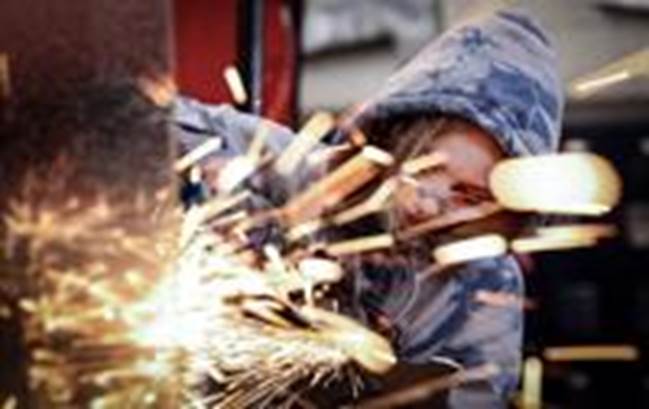Friends of Chapter 74 Vocational Technical & Agricultural Education,
We are most pleased to share this piece from The Sun Chronicle.
David
Our View: A good education shouldn’t depend on luck
Metal fabrication freshman Maya Kettell works on a project recently at Tri-County Regional Vocational Technical High School in Franklin. MARK STOCKWELL/THE SUN CHRONICLE
Should your child’s admission to a vocational high school depend on luck?
The Massachusetts Department of Elementary and Secondary Education does. So does Gov. Maura Healey.
They want to adopt a policy that would only allow the state’s 28 regional trade schools — including Tri-County Regional Vocational in Franklin and Southeastern Regional Vocational in Easton — to use attendance and discipline as screening criteria for students. Otherwise, all applicants would be chosen by lottery.
However, as Sun Chronicle reporter Susan LaHoud reported in an in-depth Weekend Edition story published March 29-30, a contingent of local lawmakers and vocational school superintendents have included a provision in the House budget for the fiscal year that begins July 1 that would pause that policy.
Instead, their proposal would create a 15-member vocational school admissions task force to review the schools’ policies. That report, with findings and recommendations, would need to be submitted to the House and Senate Ways and Means committees by Sept. 15, 2026, according to the proposal.
We believe this is a better solution to what is a troubling problem.
Because trade schools are at capacity, more than 8,500 middle school students out of roughly 20,300 applicants, about 42%, were denied admission last year.
Now, vocational schools are allowed to select students on criteria such as grades, recommendations from guidance counselors, and personal interviews. Superintendents believe there should be some local control in the admissions process.
Lottery advocates argue the policies are discriminatory against low-income students, students with disabilities, English learners, and students of color. Critics have argued the students who are unlikely to attend college and are most in need of such training are being displaced by high-performing students who already plan to seek higher education.
Last year, a Boston Globe analysis of recently published admissions data confirmed the system disproportionately denies marginalized students access to vocational education. Students from low-income families, for example, were more likely to apply to the schools than their more-advantaged peers, but about 30% were less likely to be accepted.
But we agree with local leaders who say that this is a major policy change affecting the education of thousands of students each year.
State Rep. Adam Scanlon, a Democrat from North Attleboro, believes the issue should be decided by the Legislature, not an appointed board and proposed that a commission be established to study and make recommendations on admission policies for vocational, technical and career schools. Several other local legislators have signed on to that proposal.
“Massachusetts is the cradle of liberty; it is unfathomable that a bureaucratic agency with no elected representation would attempt to force such a monumental decision on every student in the Commonwealth without the consent of the legislature,” Scanlon said in a statement. “I am glad the House is advocating for a more collaborative and democratic approach.”
We agree.
We also believe students shouldn’t have to depend on luck to get into the public school of their choice. The bigger task facing the state is expanding capacity at the state’s vocational schools.
That’s a much bigger job, but one that is necessary as educational demands change.
Chapter 74 Vocational Technical & Agricultural Education
LEARNING THAT WORKS FOR MASSACHUSETTS
David J. Ferreira
MAVA Communications Coordinator
DavidFerreira



